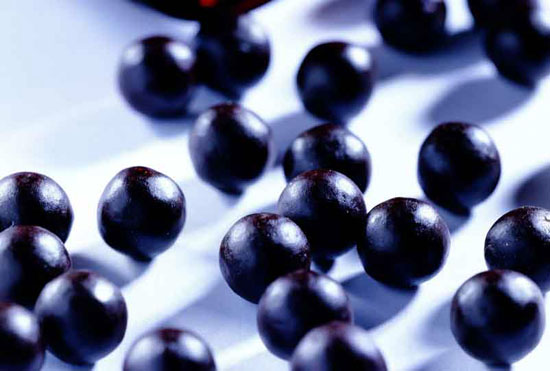Many practitioners of Chinese medicine incorporate herbs into their arsenal of healing tools. They do so because an herbal formula can enhance and prolong the effects of your herbal treatment. In addition, TCM practitioner can tailor a combination of herbs to suit your exact needs. Chinese herbs almost always are a combination of herbs, called formulas, in order to more closely target your condition. However, many people don't realize that the same herbal formula may come in a variety of forms. Here are some of your options:
1. Pills
These are cute little pills that look a lot like bunny droppings. In this format, the herbs have been cooked, concentrated, and rolled into small pills. The benefit is that tea pills are small, so they are convenient and easy to take. However, they don't tend to be as strong as herbs in other forms, so you need to take quite a few to get the desired result as many as 10-15 three times a day. (It sounds like a lot, but it's not really; it amounts to about a teaspoon of herbs.)
2. Capsules
This is a good choice for people who can't get over drinking foul-tasting herbal teas. The raw herbs are finely ground and placed into gelatin capsules. You generally have to take a few capsules to get enough of the herbs, but it's convenient and there's no bad taste.
3. Tablets
While a capsule and tablet may sound alike, a tablet format means that the herbs have been processed in some way and compressed into a tablet. Tablets have the same convenience and taste benefits as capsules, but an additional plus is that in the processing, herbs in tablet form can be more concentrated, so you take fewer to get the same potency.

4. Granules
While granules are a lot like a powdered formula, they are processed a little differently, and tend to be a little grainier and moister. Many common formulas for colds and flu that are sold over the counter as Asian grocery stores are in granule form, and frequently they have some kind of sugar added to make them a little easier to take.
5. Powders
You can get most formulas in a powdered form, in which the herbs have been decocted (boiled in water), but then dried and formed into a powder. To take a powdered formula, you mix a measured amount into hot water and drink it. The formula can be as potent as raw herbs, it's a lot easier to brew up, but again depending on the ingredients, the taste can be pretty funky.
6. Tinctures
To make a tincture, herbs are cut up and soaked in alcohol, which extracts the active ingredients from the herbs. After removing the herbs, you are left with an alcohol-based liquid which can be taken a few drops at a time or by adding some of the tincture to water and drinking it. Because tinctures can be diluted quite easily, it's often a good format for children.
7. Raw herbs
These are herbs that look like the twigs and leaves that they are. In fact, many of them may be growing in your garden. To take them, you need to boil the herbs and drink the water they were boiled in. For the purists in the world, this is usually the most effective way of taking Chinese herbs. The downside is that it's a lot of work, and there is no guarantee that what you brewed up is going to taste good–most likely it won't.

![Diseases, Symptoms, tcm, [tcmwindow.com]](/uploadFile/adImg/2015/11/11/f5cbfcc0-4df5-4646-9b9a-f316651a0199.jpg)





